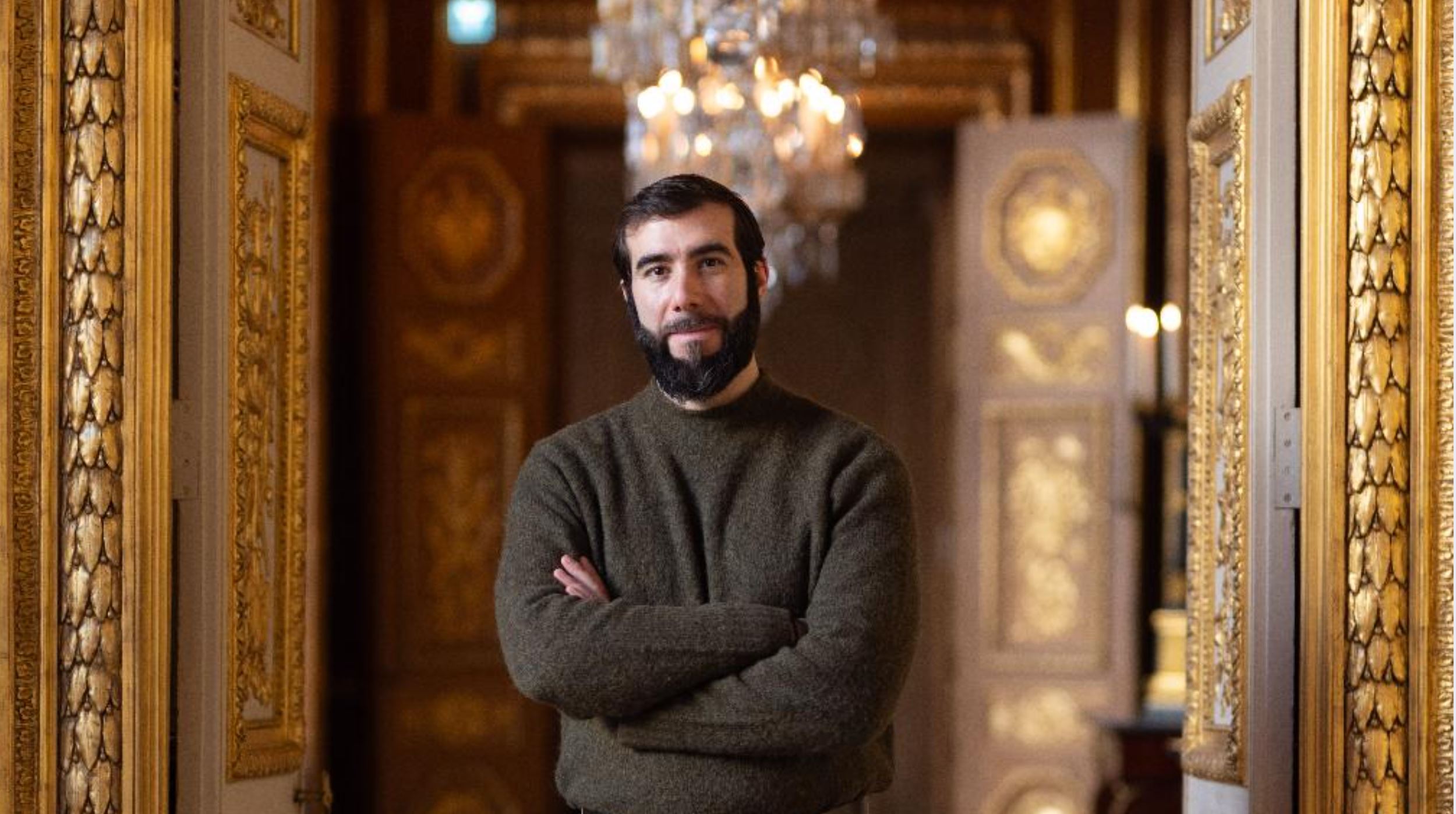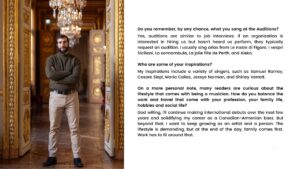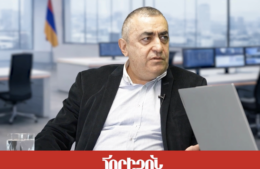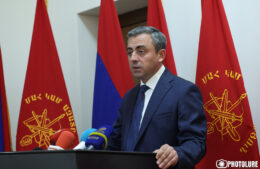Vartan Gabrielian: From Altar to Opera House
- (0)

By Dania Ohanian




Vartan Gabrielian: From Altar to Opera House
By Dania OHANIAN
There is a particular thrill in discovering a voice that resonates with both emotional depth and technical precision, and Vartan Gabrielian’s voice offers just that and it has quickly made him a rising star in the opera world. His journey began at St. Mary’s Armenian Church in Toronto, where, as an altar boy, he discovered the power of sacred music—a grounding influence that kept him “out of trouble”. Encouraged by Bishop Meghrig Parikian to pursue formal training, Gabrielian’s path led him through the Royal Conservatory of Music, the Curtis Institute of Music, and to some of the world’s most renowned stages.
Now a member of the Troupe Lyrique at the Opéra national de Paris, Gabrielian’s career is on the rise, with performances lined up at the Opéra national de Paris, Royal Opera House, and Opéra de Lausanne for the upcoming 2025/26 season. Beyond the opera stage, he remains a reflective artist, a person of faith, and a strong advocate for making opera more accessible to younger audiences.
The Opera Singer
What first drew you to opera?
My introduction to music came through my Armenian heritage and the church. As an altar boy at St. Mary’s Armenian Church in Toronto, I was surrounded by sacred music. Fr. Meghrig Parikian was the first to recognize my vocal potential and encouraged me to train formally. My late father found me a wonderful voice teacher at the Royal Conservatory of Music, these studies led me to the Curtis Institute of Music in Philadelphia, where my passion for opera truly developed.
What are the biggest challenges of being an opera singer?
Developing mental resilience and stamina. Rejection is a constant in this industry, and it can shake your confidence. You have to learn to accept it as part of the process and keep honing your craft. Getting to the top is hard, but staying there is even harder.
How do you choose your repertoire?
My repertoire is constantly evolving. Right now, I’m focusing on roles like Figaro in Le nozze di Figaro, Procida in I vespri siciliani, and Nick Shadow in The Rake’s Progress. As a bass-baritone, my voice is still maturing, so I have to be careful not to take on roles too early. The voice is a living organism—it changes with age, fitness, and stress. Singing the wrong role at the wrong time can be damaging, so it’s critical to choose wisely.
How do you prepare for a role?
It’s a mix of vocal preparation, dramatic study, and physical conditioning. I start with the text—understanding the language, the poetry, and the character’s intentions. Then, I work on vocal technique to ensure I sing the role efficiently and with ease. Physically, opera is demanding, so I also train in the gym to build strength and stamina.
How do you stay connected to your Armenian roots while working internationally?
My faith is central to my life. Wherever I am, I try to serve as a deacon in the Armenian Church. It keeps me grounded. There’s something about chanting our ancient melodies that reminds me where I come from. It’s humbling.
What do you feel needs to be done to grow classical music audiences/listeners?
Classical music and opera possess the same marketability as today’s top artists, yet they lack the social media presence that platforms like TikTok and Instagram provide, driven by influencers and content creators. To reach a wider, and younger audience, the marketing approach must evolve.
Behind the Artist
What do you consider to be the most important ideas and concepts to impart to aspiring musicians?
I’ll be honest… becoming a working musician is a treacherous journey full of many battles, failures, and eventually successes. Talent only gets us so far, the rest is hard work, determination, the pure power of will, and a little bit of luck. Thirty minutes of hard work every day will outperform five hours of hard work twice a week.
What are some tips or suggestions you have that might encourage kids to give such music a chance?
EVERYONE should study music, even if it will not be your career. While learning to sing or play an instrument we are taught many other skills such as creativity, discipline, empathy, problem-solving skills, patience, resilience, and teamwork. I didn’t have the patience to learn an instrument when I was younger, but I responded to singing, there’s an instrument for all types of personalities!
Where should a young person start? If they’ve read our conversation and want to give opera a shot, where should they look?
A young person should find a singer who is a professional and is willing to guide them on their journey. We have many singers in our communities with operatic training who are having wonderful careers. We can be reached very easily, and I am personally always available to those who are interested in having a conversation.
What are your interests outside of opera?
I love reading—especially history and theology. I’ve recently started studying theology, which has been a long-held passion. Fitness is also a big part of my life. And, of course, spending time with my wife, Ani. She’s a pianist, so we spend a lot of time working on repertoire together.
Do you remember, by any chance, what you sang at the Auditions?
Yes, auditions are similar to job interviews. If an organization is interested in hiring us but hasn’t heard us perform, they typically request an audition. I usually sing arias from Le nozze di Figaro, I vespri Siciliani, La sonnambula, La jolie fille de Perth, and Aleko.
Who are some of your inspirations?
My inspirations include a variety of singers, such as Samuel Ramey, Cesare Siepi, Maria Callas, Jessye Norman, and Shirley Verrett. On a more personal note, many readers are curious about the lifestyle that comes with being a musician.
How do you balance the work and travel that come with your profession, your family life, hobbies and social life?
God willing, I’ll continue making international debuts over the next few years and solidifying my career as a Canadian-Armenian bass. But beyond that, I want to keep growing as an artist and a person. The lifestyle is demanding, but at the end of the day, family comes first. Work has to fit around that.




















